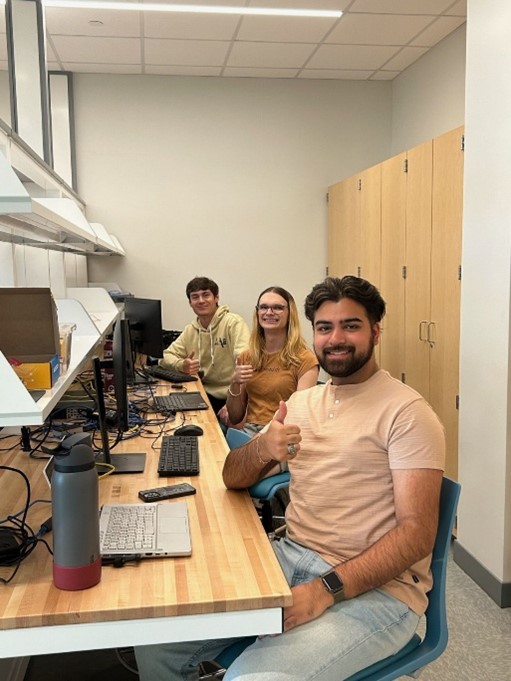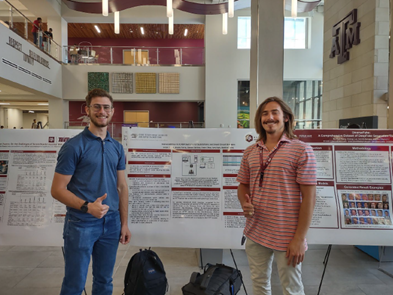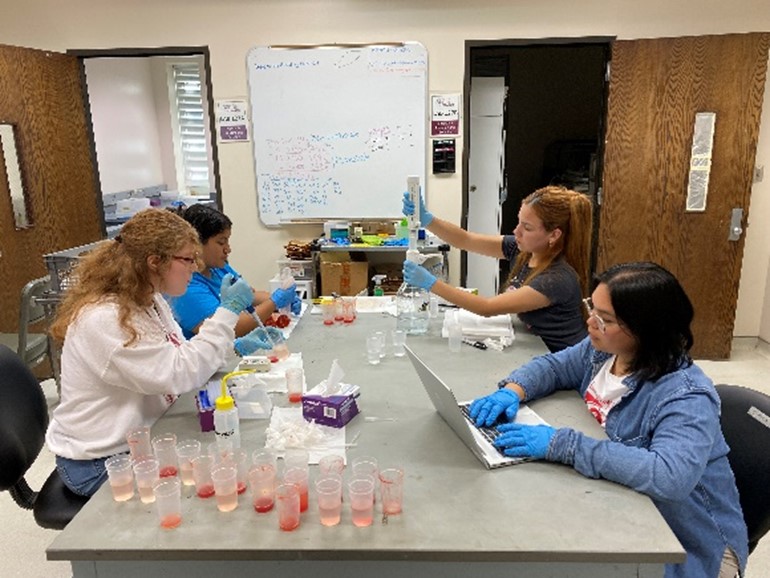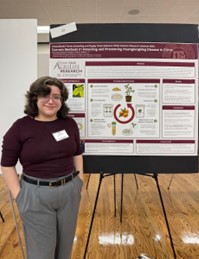In 2024, the Center offered two Summer Research Institutes (SRI) in Cybersecurity and Biothreat Defense. SRI is a 10-week summer research program for undergraduate students in STEM. Twenty-one students participated and presented eight research projects at the conclusion of the 10-week session. In addition to their full-time research obligations, students attended several professional development sessions from speakers at Texas A&M University Career Center and Graduate School, Texas Department of Agriculture, US Department of Agriculture, and Cybersecurity and Infrastructure Security Agency (CISA). They also toured facilities at the Texas A&M RELLIS campus including the Bush Combat Development Complex and Innovation Proving Grounds.
Cybersecurity

Cybersecurity SRI students completed the following research projects focused on identifying vulnerabilities and securing critical power infrastructure against cyber threats:
- Vulnerabilities in SCADA systems for substations and smart circuit breakers
- Cybersecurity in smart grid advanced metering infrastructure: Blockchain for security
- From substation to nation: Validating security of communication and operations in distribution stations

Students toured Bryan Texas Utilities facilities in Lake Bryan, Texas, where they learned about infrastructure protection at the power plant, substations, and the operations control center. After the conclusion of the summer program, students presented their research at the Texas A&M Conference on Energy, Global Cyber Research Institute Summit, and IEEE Power and Energy Conference.
Biothreat Defense
Biothreat Defense SRI students complete the following research projects focused on plant pest identification and transmission:

- Identification of Tobacco Mosaic Virus (TMV) in Nicotinia benthamiana
- Current methods in detecting and preventing Huanglongbing Disease in citrus
- Huanglongbing (Citrus greening) disease identification and evaluation methods
- Marker assisted selection using P6-25 SCAR marker linked to Ty-3 resistance gene in tomato F1 hybrids developed for South Texas production
- Evaluation of Texas A&M AgriLife tomato F1 hybrids for the presence of Ty-2 gene conferring resistance to Tomato Yellow Leaf Curl Virus (TYLCV)
- Screening Texas A&M AgriLife tomato F1 hybrids for Fusarium Wilt resistance
- Using PCR for disease diagnosis: Testing Candidatus Liberibacter solanacearum presence in tomato cultivars and its insect vector
- Economic analysis of whiteflies
- Economic risk analysis of Citrus Greening Disease
- Impact and management of CLso ‘Candidatus Liberibacter solanacearum’ in potato crops

Students toured the Global Health Research Institute at Texas A&M University, the Pharr International Port of Entry, and the USDA Plant Inspection Station at Los Indios, Texas.
After the conclusion of the summer program, four students presented research at the Texas Plant Protection Association Annual Meeting.
